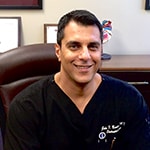What is Cryoablation?
Cryoablation is a cardiac ablation technique that uses intense cooling energy to freeze and destroy abnormal heart tissue. Abnormal heart cells and tissue can contribute to a range of conditions causing an irregular heartbeat, or arrhythmia. By freezing specific sections of the heart, these abnormal cells can be destroyed to allow the heart’s activity to return to normal, preventing arrhythmia-related complications.
Why is Cryoablation Done?
Cryoablation, like radiofrequency ablation, is used to target abnormal heart cells causing an irregular heartbeat. Special cells in the heart are responsible for creating electrical waves that travel through the heart’s chambers, telling it to beat. An irregular heartbeat can be the symptom of certain conditions such as atrial fibrillation. Cryoablation can offer an alternative to medication that proves ineffective or results in bothersome side effects.
Both cryoablation and radiofrequency ablation are highly effective at destroying the abnormal cells to correct an irregular heartbeat, however, cryotherapy has some benefits over radiofrequency. With cryotherapy, the heart’s activity is monitored while the tissue is being cooled, ensuring that the targeted area is actually causing the irregular activity before it’s destroyed. If the area that is cooled does not restore the heart’s normal electrical function, it can be warmed again without causing any damage.
When is Cryoablation Needed?
Dr. Beshai may recommend cryoablation after an ECG test shows an irregular heartbeat, diagnosing you with an arrhythmia condition. Symptoms of an irregular heartbeat can include:
- Heart fluttering
- Heart murmur
- Fainting
- Dizziness
- Shortness of breath
- Weakness and fatigue
These symptoms can all be a result of the blood not pumping blood through its chambers efficiently. Dr. Beshai will only suggest cryotherapy after the appropriate testing has been conducted. Treatment with cryotherapy can reduce the risk of serious complications related to arrhythmias such as blood clots, stroke, and heart failure.
Have Inquiries About Our Services?
How is Cryoablation Performed?
Cryotherapy can be performed at the same time as heart surgery, but it is most often performed with the use of catheters. Prior to treatment, a nurse will administer anesthesia and sedation to ensure your comfort throughout the process. The area where the catheters will be inserted will be cleaned, shaved, and numbed. Catheters will be inserted into a vein, typically in the groin, but a vein in the neck or forearm is sometimes used instead.
o insert the catheters, a thin needle will first be placed in the vein. A thin tube will then be placed through the needle, and the catheters will be placed through the tube and guided to different areas of the heart. Each catheter has an electrode tip that can both detect the heart’s electrical signals and give Dr. Beshai a visual of the heart.
Once the suspected abnormal area of the heart has been identified, the catheter tips cool the tissue to -25 degrees Celsius. This allows Dr. Beshai to test the heart tissue before permanently destroying it. Once it has been confirmed that the tissue is responsible for causing irregular activity, it will be cooled to about -75 degrees, permanently destroying it to restore regular electrical signals in the heart. This process can take between 2-4 hours to complete.
What are the Next Steps After Cryoablation?
After cryoablation, you will be moved to a recovery room where you can rest and be monitored. Some mild soreness can be expected, but most patients can get right back to their regular routine with no downtime. You will have a follow-up appointment with Dr. Beshai for testing to ensure that cryoablation was successful at restoring the heart’s electrical activity. In some cases, further treatment is needed.
Schedule Your Cryoablation Appointment
Dr. Beshai is highly experienced with performing cryoablation to manage an irregular heartbeat or arrhythmias condition. Treatment will cryoablation is very successful in most cases and can prevent cardiac conditions from developing into a more serious problem. To learn more about the treatment and cardiac testing, schedule your appointment at the Heart Rhythm Institute of Arizona.
The Heart Institute of Arizona has a wide array of services that come with our premium care. From in-office dianostics and treatable conditions, to hospital based procedures, we’ve got your heart covered.
Dr. Beshai is a board-certified electrophysiologist internationally renowned and respected for his expertise and research. Having published in major medical journals and travelled all over the world to present research, he is dedicated to providing innovative, state-of-the-art care to his patients.
-
John F. Beshai, MDhttps://heartbeataz.com/author/heartbeata/
-
John F. Beshai, MDhttps://heartbeataz.com/author/heartbeata/
-
John F. Beshai, MDhttps://heartbeataz.com/author/heartbeata/
-
John F. Beshai, MDhttps://heartbeataz.com/author/heartbeata/

